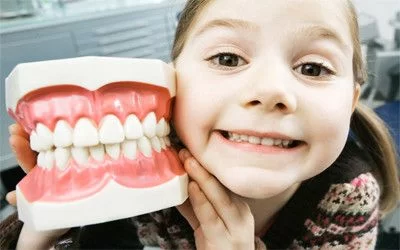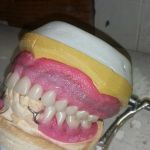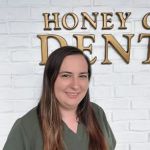
Protect Your Smile: The Foods You Should Avoid for Better Oral Health
We all love indulging in tasty treats, but did you know that some of our favorite foods could be silently harming our teeth? I’ve always believed that good oral hygiene and regular dentist visits are the pillars of maintaining a healthy smile, but the role of diet is often underestimated. The reality is that the food you eat plays a huge part in your oral health, and there are certain foods that could be doing more harm than good. Let’s dive into why it’s important to avoid certain foods and how they affect your dental health in ways you might not even realize.
The Impact of Sugary Foods on Your Teeth
Most of us know that sugary foods like candy, soda, and pastries aren't the best for our waistlines, but did you know they can also wreak havoc on your teeth? Sugar is the primary fuel for bacteria in your mouth. When these bacteria feast on sugar, they produce acids that can erode your tooth enamel. Over time, this enamel erosion can lead to cavities and other dental problems. I still remember when I had a cavity for the first time after bingeing on sugary snacks during a weekend getaway. That toothache was a painful reminder of how sugar harms not just my waistline, but my teeth too!
Acidic Foods: The Silent Eroders
While we often hear about the dangers of sugary foods, acidic foods are just as harmful to your teeth. Foods like citrus fruits, tomatoes, and pickles can have a highly acidic pH, which can wear down tooth enamel over time. I personally used to love drinking lemon water, thinking it was a healthy habit. However, after speaking with my dentist, I learned that the acidity can contribute to enamel erosion. Though these foods are packed with vitamins and nutrients, it’s important to consume them in moderation and rinse your mouth with water afterward to help minimize the damage.
Sticky Foods: A Tooth's Worst Enemy
One thing I’ve realized over the years is that sticky foods, such as dried fruits, granola bars, and even some breakfast cereals, can be deceptively damaging to your teeth. These foods tend to cling to your teeth and linger for a long time, giving bacteria more time to break down sugars and produce acids. I once enjoyed a granola bar thinking it was a tooth-friendly snack, but I found that the remnants stuck to my teeth, causing plaque buildup and making it harder to clean. The longer food particles stay on your teeth, the greater the risk of tooth decay.
The Role of Starchy Foods in Oral Health
Another food group I had to reconsider was starchy foods like chips, bread, and pasta. While they might not seem as harmful as sugary or acidic foods, starches are broken down into sugar by your saliva. Just like sugary snacks, this sugar feeds the bacteria in your mouth, leading to plaque buildup and cavities. I used to snack on chips without much thought, but I realized that the starches were sticking to my teeth, providing a perfect environment for bacteria to thrive. These carbs might not be immediately noticeable in terms of their impact, but over time they can contribute to tooth decay if not properly cleaned off your teeth.
Drinks That Can Harm Your Teeth
It's not just the food we eat that impacts our teeth, but also the beverages we drink. Soda, sports drinks, and even some fruit juices are full of sugar and acid. I once enjoyed a daily soda with lunch, but after noticing my teeth weren’t as white as they used to be, I started looking into how these drinks affect oral health. The acidity in these drinks can wear down enamel, and the sugar can lead to cavities. As someone who had to get a root canal later in life, I can attest to how neglecting to watch what I consumed led to irreversible damage. Now, I make sure to drink plenty of water throughout the day, and when I do indulge, I always rinse my mouth afterward to help minimize the impact on my teeth.
What You Can Do to Protect Your Teeth
So, what can you do to ensure you're protecting your teeth while still enjoying a wide variety of foods? It’s all about balance. There are several things I’ve learned along the way that can help protect your oral health:
- Brush and Floss Regularly: Brushing twice a day and flossing once a day can help remove food particles and plaque, preventing decay. Make sure to use fluoride toothpaste for added protection.
- Stay Hydrated: Drinking water throughout the day helps rinse away food particles and bacteria that may be left on your teeth.
- Use a Straw: When drinking acidic or sugary beverages, using a straw helps minimize contact between the liquid and your teeth.
- Choose Teeth-Friendly Snacks: Opt for foods that are less likely to stick to your teeth and more likely to clean them, like apples, carrots, or cheese.
- Visit Your Dentist Regularly: Regular dental checkups can help catch potential issues early, making treatment easier and less expensive.
Incorporating these habits into my daily routine has made a huge difference in my oral health. I no longer fear my dentist visits, and I’m more conscious of what I put in my mouth. Protecting your teeth doesn’t mean giving up all your favorite foods; it just means being mindful of how and when you eat them. By making a few small changes, you can enjoy a healthier, brighter smile for years to come!







 Wilshire Periodontics & Dental5.0 (2 review)
Wilshire Periodontics & Dental5.0 (2 review) Classic Dental Laboratory0.0 (0 review)
Classic Dental Laboratory0.0 (0 review) Lakeview Dental PC4.0 (29 review)
Lakeview Dental PC4.0 (29 review) Grafton Dental Care4.0 (152 review)
Grafton Dental Care4.0 (152 review) Dental Health Associates - Sun Prairie Clinic4.0 (622 review)
Dental Health Associates - Sun Prairie Clinic4.0 (622 review) Honey Creek Dental4.0 (58 review)
Honey Creek Dental4.0 (58 review) The Importance of Oral Health Education During Pregnancy for a Healthy Pregnancy
The Importance of Oral Health Education During Pregnancy for a Healthy Pregnancy Best Tips for Brushing Your Teeth Properly for Healthy Gums: Essential Techniques for Oral Health
Best Tips for Brushing Your Teeth Properly for Healthy Gums: Essential Techniques for Oral Health Why Skipping Dental Checkups Can Lead to Bigger Oral Health Problems
Why Skipping Dental Checkups Can Lead to Bigger Oral Health Problems Advantages of Porcelain Dental Restorations
Advantages of Porcelain Dental Restorations How Can Diabetes Cause Tooth and Gum Problems? Preventing and Managing Oral Health Issues
How Can Diabetes Cause Tooth and Gum Problems? Preventing and Managing Oral Health Issues Healthy Habits for Promoting Good Oral Health and Hygiene: Tips for a Healthy Smile
Healthy Habits for Promoting Good Oral Health and Hygiene: Tips for a Healthy Smile